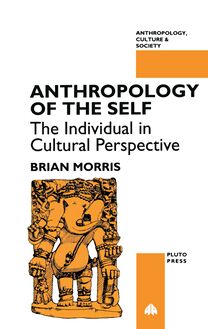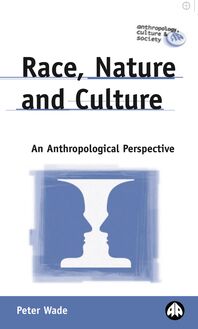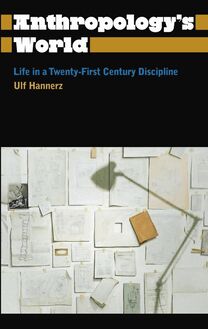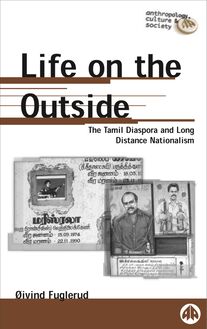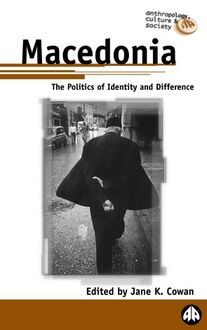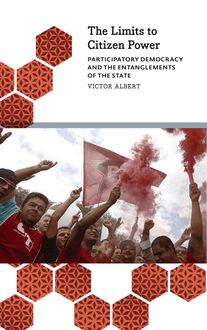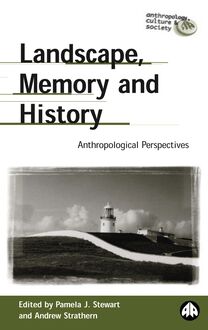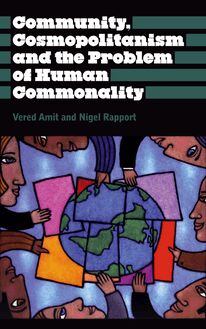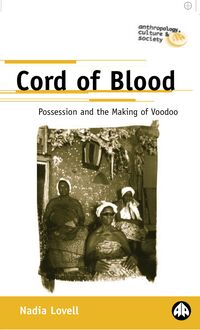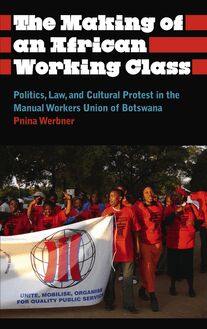-
 Univers
Univers
-
 Ebooks
Ebooks
-
 Livres audio
Livres audio
-
 Presse
Presse
-
 Podcasts
Podcasts
-
 BD
BD
-
 Documents
Documents
-
- Cours
- Révisions
- Ressources pédagogiques
- Sciences de l’éducation
- Manuels scolaires
- Langues
- Travaux de classe
- Annales de BEP
- Etudes supérieures
- Maternelle et primaire
- Fiches de lecture
- Orientation scolaire
- Méthodologie
- Corrigés de devoir
- Annales d’examens et concours
- Annales du bac
- Annales du brevet
- Rapports de stage
La lecture à portée de main
212 pages
English
Découvre YouScribe en t'inscrivant gratuitement
Je m'inscrisDécouvre YouScribe en t'inscrivant gratuitement
Je m'inscris
Obtenez un accès à la bibliothèque pour le consulter en ligne
En savoir plus
En savoir plus
212 pages
English
Obtenez un accès à la bibliothèque pour le consulter en ligne
En savoir plus
En savoir plus

Description
The concept of well-being has emerged as a key category of social and political thought, especially in the fields of moral and political philosophy, development studies and economics.
This book takes a critical look at the notion of well-being by examining what well-being means, or could mean, to people living in a number of different regions including Sudan, Nepal, Papua New Guinea, India, Sierra Leone and the UK.
The contributors take issue with some of the assumptions behind Western concepts of well-being. They explore what characterises a 'good life' and how this idea has been affected by globalisation and neoliberalism. The book makes a major contribution to social theory by presenting new analytical models that make sense of the changing shapes of people's life and ethical values.
Acknowledgements
Notes on contributors
Introduction
Well-being's re-proportioning of social thought by Alberto Corsín Jiménez
Part I: Distributive values
1. The impossibility of wellbeing: development language and the pathologisation of Nepal by Ian Harper and Bryan Maddox
2. Good ways and bad ways: transformations of law and mining in Papua New Guinea1 by Eric Hirsch
Part II. Persons
3. Well-being: in whose opinion, and who pays? by Wendy James
4. Primed for well-being: young people, diabetes and insulin pumps by Griet Scheldeman
5. On well-being, being well and well-becoming: on the move with hospital porters by Nigel Rapport
Part III: Proportionalities
6. Measuring--or practicing--well-being? by Michael Lambek
7. 'Realising the substance of their happiness': how anthropology forgot about homo gauisus by Neil Thin
8. The intension and extension of well-being: transformation in diaspora Jain understandings of non-violence by James Laidlaw
9. Well-being in anthropological balance: remarks on proportionality as political imagination by Alberto Corsín Jiménez
Index
This book takes a critical look at the notion of well-being by examining what well-being means, or could mean, to people living in a number of different regions including Sudan, Nepal, Papua New Guinea, India, Sierra Leone and the UK.
The contributors take issue with some of the assumptions behind Western concepts of well-being. They explore what characterises a 'good life' and how this idea has been affected by globalisation and neoliberalism. The book makes a major contribution to social theory by presenting new analytical models that make sense of the changing shapes of people's life and ethical values.
Acknowledgements
Notes on contributors
Introduction
Well-being's re-proportioning of social thought by Alberto Corsín Jiménez
Part I: Distributive values
1. The impossibility of wellbeing: development language and the pathologisation of Nepal by Ian Harper and Bryan Maddox
2. Good ways and bad ways: transformations of law and mining in Papua New Guinea1 by Eric Hirsch
Part II. Persons
3. Well-being: in whose opinion, and who pays? by Wendy James
4. Primed for well-being: young people, diabetes and insulin pumps by Griet Scheldeman
5. On well-being, being well and well-becoming: on the move with hospital porters by Nigel Rapport
Part III: Proportionalities
6. Measuring--or practicing--well-being? by Michael Lambek
7. 'Realising the substance of their happiness': how anthropology forgot about homo gauisus by Neil Thin
8. The intension and extension of well-being: transformation in diaspora Jain understandings of non-violence by James Laidlaw
9. Well-being in anthropological balance: remarks on proportionality as political imagination by Alberto Corsín Jiménez
Index
Sujets
Informations
| Publié par | Pluto Press |
| Date de parution | 20 novembre 2007 |
| Nombre de lectures | 0 |
| EAN13 | 9781849643689 |
| Langue | English |
Informations légales : prix de location à la page 0,6250€. Cette information est donnée uniquement à titre indicatif conformément à la législation en vigueur.
Extrait
CULTURE AND WELLBEING Anthropological Approaches to Freedom and Political Ethics
Edited by ALBERTOCORSÍNJIMÉNEZ
P PlutoPress LONDON • ANN ARBOR, MI
First published 2008 by Pluto Press 345 Archway Road, London N6 5AA and 839 Greene Street, Ann Arbor, MI 48106
www.plutobooks.com
Copyright © Alberto Corsín Jiménez 2008 The right of the individual contributors to be identified as the author of this work has been asserted by them in accordance with the Copyright, Designs and Patents Act 1988.
British Library Cataloguing in Publication Data A catalogue record for this book is available from the British Library
ISBN13 978 0 7453 2680 1 ISBN10 0 7453 2680 3
Library of Congress Cataloging in Publication Data applied for
This book is printed on paper suitable for recycling and made from fully managed and sustained forest sources. Logging, pulping and manufacturing processes are expected to conform to the environmental regulations of the country of origin.
10
9
8
7
6
5
4
3
2
1
Designed and produced for Pluto Press by Chase Publishing Services Ltd, Fortescue, Sidmouth, EX10 9QG, England Typeset from disk by Stanford DTP Services, Northampton, England Printed and bound in India
CONTENTS
Acknowledgements
Introduction: WellBeing’s ReProportioning of Social Thought Alberto Corsín Jiménez
Part I Distributive values 1. The Impossibility of WellBeing: Development Language and the Pathologisation of Nepal Ian Harper and Bryan Maddox 2. Good Ways and Bad Ways: Transformations of Law and Mining in Papua New Guinea Eric Hirsch Part II Persons 3. WellBeing: In Whose Opinion, and Who Pays? Wendy James 4. Primed for WellBeing? Young People, Diabetes and Insulin Pumps Griet Scheldeman 5. On WellBeing, Being Well and WellBecoming: On the Move with Hospital Porters Nigel Rapport
Part III Proportionalities 6. Measuring – or Practising – WellBeing? Michael Lambek 7. ‘Realising the Substance of Their Happiness’: How Anthropology Forgot AboutHomo Gauisus Neil Thin 8. The Intension and Extension of WellBeing: Transformation in Diaspora Jain Understandings of NonViolence James Laidlaw
v
vii
1
35
53
69
80
95
115
134
156
viCulture and Wellbeing 9. WellBeing in Anthropological Balance: Remarks on Proportionality as Political Imagination 180 Alberto Corsín Jiménez
Notes on contributorsIndex
199 202
ACKNOWLEDGEMENTS
This volume came out of a conference held at the University of Manchester in September 2004 on the topic of ‘Wellbeing: anthropological perspectives’. I would like to thank all those who attended the conference, and in particular the speakers whose original papers make up the material of this book, for their participation and enthusiasm. Laura Rival’s paper could not in the end make it to the volume, but I would like to thank her for her active participation during the event. Very special thanks are due to James Carrier, who helped shape the proposal for the conference at its earliest stages. Although he was unable to attend the conference, much of the original impetus for the organisation of the event came from his support. Thanks also to Wendy James, who appreciated the relevance of the topic and provided encouragement at the time when it was most needed. Finally, I want to express my gratitude to the following institutions, which provided funding for the event: the British Academy, the Royal Anthropological Institute and the Social Anthropology department at the University of Manchester.
vii
INTRODUCTION: WELLBEING’S REPROPORTIONING OF SOCIAL THOUGHT
Alberto Corsín Jiménez
Man is apolitical. Politics is born in theinbetweennesshence whollyof men, outsideMan. There is no political substance as such. Politics emerges in the inbetween and is established as a relation. (Arendt 1997 [1993]: 46)
… liberal political theory should shape its account of itself more realistically to what is platitudinously politics. (Williams 2005: 13)
What would happiness be that was not measured by the immeasurable grief at what is? For the world is deeply ailing. (Adorno 2005 [1951]: 200)
In describing the Nuer of the southern Sudan, EvansPritchard describes Nuer happiness as ‘that in which a family possesses several lactating cows, for then the children are wellnourished and there is a surplus that can be devoted to cheesemaking and to assisting kinsmen and entertaining guests’ (1940: 21). This is in line with the Nuer’s larger interest in cattle. Men are addressed by names that describe the colour and shape of their favourite oxen; women and children often take their names from the cows they milk. Cattle names also figure profusely in songs and poems; and it is cattle, too, that are used to prescribe marriage payments, and to define kinship rights and obligations. Moreover, men establish contact with the spirits of their ancestors through cattle. Kinship and genealogy are thus expressed through the movement, transference and circulation of cattle. The focus of EvansPritchard’s famous monograph is not, however, cattle, but the organisation of political institutions, which amongst the Nuer were structured around the alignment of territorial, lineage and agesystem segments. At different orders of social organisation (homestead, village, clan, tribe, etc.), the principles triggering these segmentary alignments create different moments of political cohesion. In the absence of formal government and legal institutions, the principle of segmentation worked as a principle of structural politics: it brought disparate people together in a unified political project. As a second, third or fourthorder alignment of kinshipgenealogical connections, then, ‘the political’ thus became the
1
2Culture and WellBeing expression of the Nuer ‘hypertrophy of [their] single interest’ in cattle (Evans Pritchard 1940: 41). In his work EvansPritchard did not address the topic of wellbeing directly. He is not alone in this in anthropology, where the topic has never been the focus of explicit attention. But, as I hope the above vignette illustrates, his extraordinarily rich descriptions of the social and political forms of life in Nuer country provide an alternative route into the political and theoretical imagination of wellbeing, one that takes ethnography as its point of departure. In this line, this book is about the social theory of wellbeing, and about anthropology’s contribution to the sociological imagination of such a theory. Its main aspiration is to show the relevance ofethnographyfor thinking through questions of political morality, and to do so by trying to engage in an original and innovative way with the literature on the economic, political and philosophical dimensions of wellbeing. As the first integrally anthropological contribution to the growing literature on wellbeing and the quality of life, the volume amounts to an effective exploration of the possibilities of an anthropology of political and ethical forms. The concept of wellbeing has emerged as a key category of social and political thought in recent times, especially in the fields of moral and political philosophy, development studies and economics (for example, Clark 2002; Crisp and Hooker 2000; Dasgupta 1993, 2001; Griffin 1986; Sen 1999; Sumner 1996). It has been used by United Nations Development Programme (UNDP) in the construction of its Human Development Index (UNDP 1990, 1994, 1998, 2002) and the World Health Organization (WHO) in devising its quality and disabilityadjusted lifeyear metrics (Cummins 2005; WHO 2001; WHOQOL Group 1993, 1998). In this sense, wellbeing has rapidly become a standard currency in economic and political models of welfare and development: the methodological and epistemological building block for theories of cosmopolitan and global justice (for example Nagel 2005; Nussbaum 2006). As a toolkit for policymaking, wellbeing has helped to cut through and unify crosscultural understandings of what it means to be a capable person, bringing together ideas about health, education, political empowerment (political and civil rights), gender relations, human rights, the natural environment, and individual freedom and opportunities. Associated with the notion of wellbeing, and perhaps more insidious for what they have of a global morality dictum (Strathern 2005), are parallel discussions about the ‘quality of life’ (Nussbaum and Sen 1993; Offer 1996) and discursive generalisations about what constitutes a ‘good life’. This book takes a critical look at the notion and discursive field of well being, exploring its valency and analytical purchase for social theory from the vantage point of crosscultural comparison. By examining what wellbeing means, or could mean, to people living in a number of different regional and ethnographic contexts (Sudan–Ethiopian border, Nepal, Papua New Guinea, India, Israel, the UK), the collection takes issue with some of the presupposi tions behind Western conceptions of wellbeing, at a time when discourses
Introduction 3 about what characterises a ‘good life’ are being subjected to farreaching scrutiny under the influence of globalisation and the widespread reach of models of liberal welfarism and development. The book thus intends to open new territories in the anthropological study of political and distributional systems of values and ethical imaginaries, and hopes to establish a major point of departure for those wishing to research the social life of ethics. The volume also makes a contribution to social theory at large by volunteering new analytical models with which to make sense of the changing shapes of people’s life and ethical projects. The rest of this introduction is concerned with reviewing the recent rise of wellbeing as a category of political and economic thought, and with disentangling its place in, and consequences for, anthropological and social theory. Though I hope to cover sufficient ground to understand the significance of wellbeing for political theory and social ethics, my review of the literature here is necessarily swift, given the vast number of works that have dealt with the topic. My remit is social theory, narrowly defined to cover political and moral philosophy, as well as economics, but not, for instance, psychology, despite the latter’s sizeable contribution to the ‘quality of life’ literature (for example Skevington 2002; WHOQOL Group 1993). I have concentrated on the former fields because it is in dialogue with these disciplines that I believe anthropology’s ethnographic edge can make the greatest contribution (though see Thin’s remarks in this volume on the relation between anthropology and psychology in this respect). The review is divided into three sections. In the first section I review the place of wellbeing in contemporary theories of political morality and distributive justice, where, especially since the appearance of John Rawls’s A Theory of Justice(1999 [1971]), the concept has gained prominence in political thought. Here we take a closer look at how wellbeing figures in contemporary political and moral philosophy, and how it has made its way into economic and development theory at large. The section aims to show some of the assumptions behind politics and social distribution in modern political theory: about what is ‘political’ and how ‘society’ divides itself up for distribution. The second section focuses on the naturalisation of the ‘political’ in social thought. It reviews some wellknown, both classic and modern, approaches to wellbeing (or surrogate conceptions, such as ‘the good life’) to draw out some general conclusions about the kinds of displacements the notion of well being has effected in our political imagination. The notion of displacement, and especially the size or proportions of such movements, is important here, and will stay with us for much of the rest of the introduction, because my concern is to focus on how political morality levers social theory. We are looking here to understand how ‘politics’, ‘society’ and ‘ethics’ become objects or proportionate forms for one another. The last section brings ethnography into the argument, and does so by setting the chapters that make up the rest of the volume in perspective, and
4Culture and WellBeing outlining the general contribution that ethnography and anthropological theory can make to our better understanding of social ethics. Here I make profuse use of the idea of ‘proportionality’, introduced earlier in the text. This relates to another concept, that of the ‘limit’. Building on these two concepts, my conclusion intimates that wellbeing is a holder of limits: an unstable and fragile resting place for the political, upon which press the disproportionate shadows of a (variously conceived) outside world.
EQUALITY AND JUSTICE
All forms of social organisation work, among other things, as institutional systems for the distribution of social justice (Douglas 1986). What makes up the fund of social justice (say, moral values, such as equality, fairness or obligation; resources, primary goods or basic needs; marginal or total utility, etc.), how it gets distributed and which institutions do the allocation, and how the various elements come together into a system, if one may speak of a system at all, are of course matters of difference and dispute. Political philosophy and social choice theory deal in these matters, and do so with a view to finding the most reasonable, rational, efficient and/or egalitarian 1 ways of organising the distribution of justice. Variously defined, wellbeing has always been at the centre of such debates about the social organisation of justice. As a surrogate of, or proxy for, justice, the term has been used and invoked to telescope the individual into the social; it has allowed economists, political philosophers and policymakers to collapse sociological differences onto a rational template. Different schools of thought have disaggregated this moment of rationalisation into different units of measurement, such as ‘income’, ‘utility’, ‘standard of living’, ‘quality of life’, ‘human development’ or ‘intergenerational welfare’ (for a comparison and economic valuation of each, see Dasgupta 2001). As one would expect, each unit yields different results of what counts as justice and of where to look for it. More importantly, every method has derivative effects on our political imagination, affecting the way we come to think of the ‘persons’ that inhabit our theories (Douglas and Ney 1998), and of the institutional arrangements through which these imaginary persons organise their social and political life. For there is little doubt that the theoretical semblance of the kinds of people that aim for, say, utility maximisation is not and cannot be the same as that 2 of those who aspire towards human flourishing – or so our theories say. Today debates about matters of political ethics and distributive justice are very much framed by the terms laid out by John Rawls in hisJusticeA Theory of , published in 1971 and described by Bernard Williams as the ‘most powerful contribution to AngloAmerican political philosophy’ in the twentieth century (2005: 29). Rawls’s starting premise shares the foundational assumptions of the classic contractarian philosophies of Hobbes or Rousseau: the idea of an ‘original position’ or primordial state of affairs, where people who do not know how they fare in life today, nor what kind of tomorrow awaits
Introduction 5 them, have to negotiate and choose the institutions that will regulate their social lives thereafter. In this scenario, individuals reason behind what Rawls famously called a ‘veil of ignorance’, an analytical device coined to make sure that people remain considerate of the possible interests of their fellow men, for these could turn out to be not unlike their own ‘plans of life’ once the veil is removed. Rawls maintained that individuals in the original position would all share similar kinds of aspirations, and in particular that they would all want to work towards designing a basic social structure whose institutions would always and everywhere maximise the wellbeing of the worstoff, because this could well be the social position they found themselves in once the veil was removed. In this regard, Rawls reasoned on the assumption that an individual’s intuitions and decisions regarding rational prudence could provide a route for solving the larger problem of choosing society’s basic institutional structure (a telescoping of the individual into the social not without its problems, see Nagel 1973). In staging such an inaugural moment for the design of our institutions of distributive justice, Rawls made it clear that the idea of the right had to take priority over the good, for individuals must concede to an idea of society premised on fairness, where the good of society as a whole cannot be advanced if it presses against the interests of any one individual. The social structure of fairness summoned here is thus founded on two principles of justice: First principle: Each person is to have an equal right to the most extensive total system of equal basic liberties compatible with a similar system of liberty for all. Second principle: Social and economic inequalities are to be arranged so that they are both: (a) to the greatest benefit of the least advantaged, consistent with the just savings principle, and (b) attached to offices and positions open to all under conditions of fair equality of opportunity. (Rawls 1999 [1971]: 266)
Rawls articulated this vision for a ‘system of equal basic liberties’ in terms of a list of ‘primary goods’. These were defined as ‘things which it is supposed a rational man wants whatever else he wants…. The primary social goods … are rights, liberties, and opportunities, and income and wealth’, as well as ‘a sense of one’s own worth’ (Rawls 1999 [1971]: 79). Throughout his later work, Rawls has insisted that the focus on primary goods is necessary as a minimum legislative requirement, and that those aspects of political morality that fall outside the immediate scope of the primary goods list (which are not few, as we will see below: they touch on matters to do with personal differences in physical and mental needs and abilities, as well as variations in power and capabilities, between persons and communities) are to be settled in a postoriginal position consensus. Rawls’s emphasis on the ‘priority of liberty’, and his fleshing out of this inaugural principle in terms of a basic list of primary goods, has been challenged on a number of fronts. Critiques have come from all quarters of the political philosophy spectrum. Although I do not have the space to dwell
-
 Univers
Univers
-
 Ebooks
Ebooks
-
 Livres audio
Livres audio
-
 Presse
Presse
-
 Podcasts
Podcasts
-
 BD
BD
-
 Documents
Documents
-
Jeunesse
-
Littérature
-
Ressources professionnelles
-
Santé et bien-être
-
Savoirs
-
Education
-
Loisirs et hobbies
-
Art, musique et cinéma
-
Actualité et débat de société
-
Jeunesse
-
Littérature
-
Ressources professionnelles
-
Santé et bien-être
-
Savoirs
-
Education
-
Loisirs et hobbies
-
Art, musique et cinéma
-
Actualité et débat de société
-
Actualités
-
Lifestyle
-
Presse jeunesse
-
Presse professionnelle
-
Pratique
-
Presse sportive
-
Presse internationale
-
Culture & Médias
-
Action et Aventures
-
Science-fiction et Fantasy
-
Société
-
Jeunesse
-
Littérature
-
Ressources professionnelles
-
Santé et bien-être
-
Savoirs
-
Education
-
Loisirs et hobbies
-
Art, musique et cinéma
-
Actualité et débat de société
- Cours
- Révisions
- Ressources pédagogiques
- Sciences de l’éducation
- Manuels scolaires
- Langues
- Travaux de classe
- Annales de BEP
- Etudes supérieures
- Maternelle et primaire
- Fiches de lecture
- Orientation scolaire
- Méthodologie
- Corrigés de devoir
- Annales d’examens et concours
- Annales du bac
- Annales du brevet
- Rapports de stage
Signaler un problème
YouScribe
Le catalogue
Le service
© 2010-2024 YouScribe

